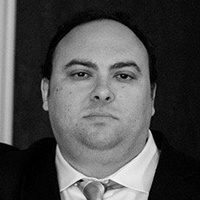Red Bluff Felony Lawyer, California
Sponsored Law Firm
-
 x
x

Click For More Info:
-
Magid Law
112 Main Street Weaverville, CA 96093» view mapCriminal Defense Law Experienced, Aggressive Criminal Defense
Hiring a criminal defense attorney is one of the most important decisions you will ever make. Don’t be a victim of the system. Choose Benjamin Magid as your attorney.
800-761-7580
Jacob Levin
✓ VERIFIEDFelony, Misdemeanor, Domestic Violence & Neglect, Child Custody, Custody & Visitation
Mr. Levin attended law school at UC Hastings in San Francisco. He was the president of the Jewish Law Students Association and founded the UC Hastings... (more)
John Joseph (aka "Joe") VanDervoort
Misdemeanor, Felony, DUI-DWI, Personal Injury
Status: In Good Standing
FREE CONSULTATION
CONTACTFREE CONSULTATION
CONTACTFREE CONSULTATION
CONTACT Benjamin Magid Weaverville, CA
Benjamin Magid Weaverville, CA Practice AreasExpertise
Practice AreasExpertise

